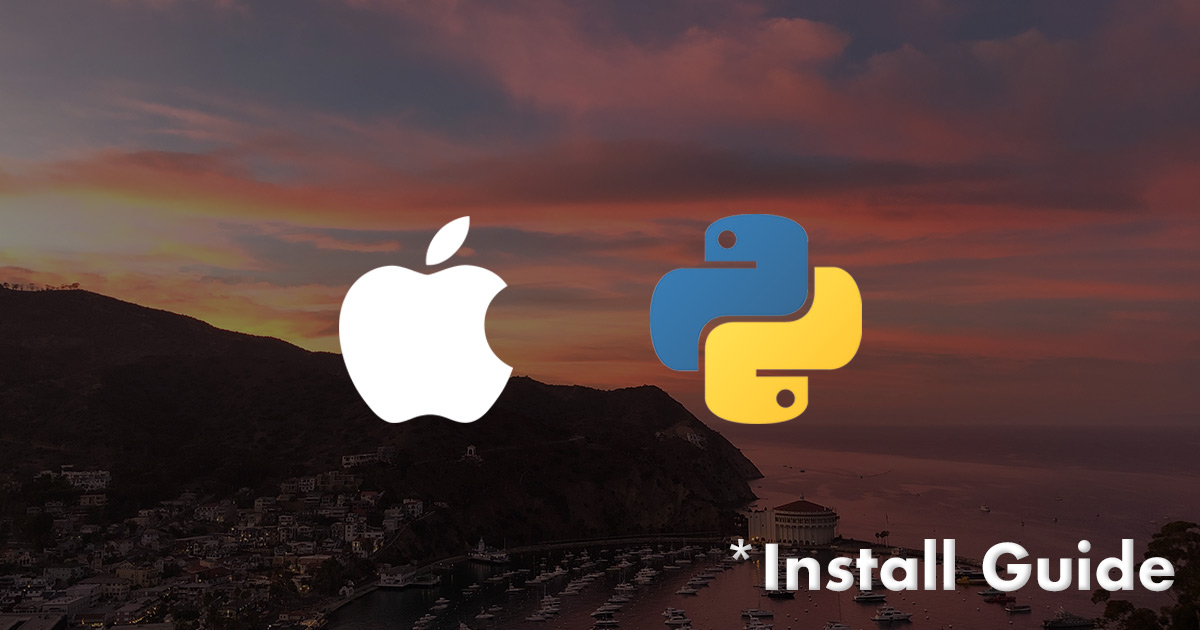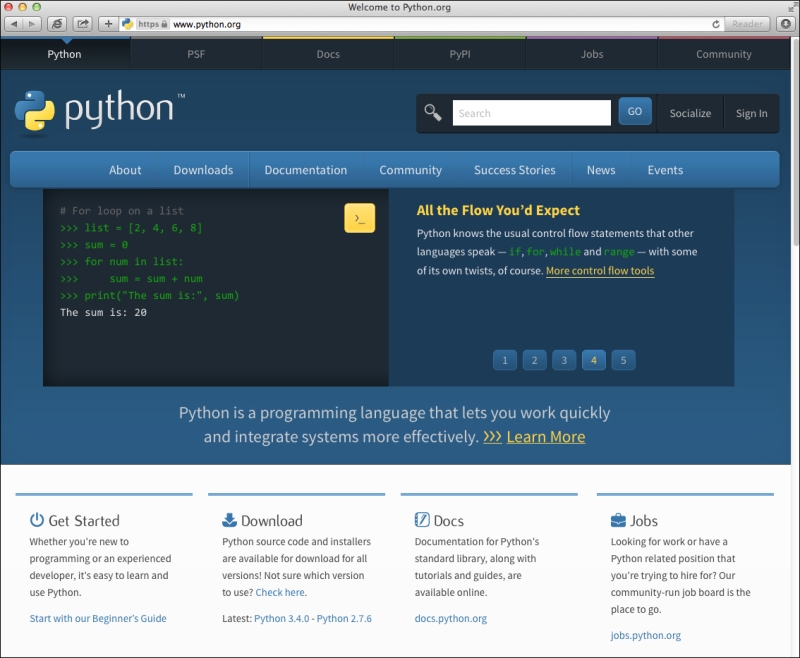

- #Mac os x install pip for python update
- #Mac os x install pip for python upgrade
- #Mac os x install pip for python software
- #Mac os x install pip for python download
- #Mac os x install pip for python mac
These steps won’t work if you’re still in Guest mode! However, that is no longer the case! You can now run Linux apps on ChromeOS which opens the door to using MiniConda to install Python 3. To check what your currently have, open a terminal and run the following command (note the dollar sign $ is the beginning of the prompt and should not be included!):Ī Chromebook runs ChromeOS as its operating system and historically running anything other than a web app–such as Python–was challenging. Python is usually installed by default on most modern Linux systems. To confirm, type print("Hello, World") again. When you see the prompt > you know it is working. Once open, type python3 to launch the Python interpreter from the command line. Open up the Terminal application which is located within Applications -> Utilities -> Terminal. You can also now access Python from the command line. You can type any command here such as print("Hello, World"). Click on the link for IDLE which launches a new Shell. The simplest way to use Python is via the built-in IDLE. There will also be a new Finder window opened with the Python 3.9 package. Click on “Move to Trash” as we no longer need the installer. You can hit the “Close” button on this.Ī popup will ask if you want to move the Python installer to the trash. Enter it and click “Install Software.”Īfter installation is a Summary window. This will launch another pop-up asking for your password. The standard install will save Python to your disk.

Click “Continue” which will launch a pop up asking if you agree to the terms. Click “Continue” again on the Read Me page. Click on the button for “Download Python 3.9.5” or whatever the latest version is.Ĭlick “Allow” on the popup asking if you want to allow downloads from “Open up a new Finder window (the keyboard shortcut of pressing Command + n will do this) and click on the sidebar for “Downloads.” Then doubleclick on the Python package to install it. Open a new browser window and visit the Downloads page. As a result, using the official installer is now a better option.
#Mac os x install pip for python software
Previously the package manager Homebrew was a great choice–it handled software installs and upgrades elegantly in most cases–but for Python itself there are several serious issues detailed by Justin Mayer in this post.
#Mac os x install pip for python mac
On Mac the recommended approach is to use the official installer. Type python -version to confirm which version is installed and then the same print("Hello, World") command as before. This opens up the Windows PowerShell terminal which has a dark blue background. On Windows, type “PowerShell” in the Start Menu search bar in the lower left corner. It is also possible to access it via the command line. Try a simple print("Hello, World") command to confirm everything works: after “Pin to Start” and click on “Pin to Taskbar” so it is always available.Ĭlick on the pinned Python logo on the bottom taskbar. Once downloaded, click on the three dots. And if you’re not logged into your Microsoft account, there will be a prompt asking if you want to sign in.
#Mac os x install pip for python upgrade
Note: If you have a “See System Requirements” link below the Get button it’s likely you need to upgrade to Windows 10.
#Mac os x install pip for python download
Click on the blue “Get” button to download it. This automatically launches Python 3.9 on the Microsoft Store. To begin, click on the search bar at the bottom left of your screen and type “python.” Click on the best match result.
#Mac os x install pip for python update
This is now the recommended way to install Python: it handles auto-updates, can be uninstalled easily, and does not update PATH variables in a way that breaks other applications. Microsoft hosts a community release of Python 3 in the Microsoft Store for computers running Windows 10+, the latest version of the operating system. This tutorial will show the current best practice approach for checking what version of Python, if any, is already on your machine and installing or updating Python for Windows, macOS, or Linux. While you can use online tools to run Python, most serious developers still rely on a local installation to work on individual and team projects.

Installing Python on your local computer is the first step to becoming a proper Python programmer.


 0 kommentar(er)
0 kommentar(er)
